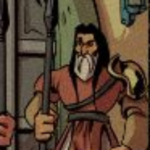Hey Friends! This story is going to be published in parts for the moment here on the website since my goal is to get it into your hands without being too bogged down by the website admin side. Once the story is complete, I’ll break it up into chapter parts. ENJOY!
—
The narrow alleyway behind the ramen shop still held the breath of the night before—metallic with frost, pungent with the brine of discarded fish bones and faint engine oil. Overhead, a sagging line of laundry stirred in the breeze like pennants, stiff with cold. Yuki’s boots scraped against wet concrete, soles worn thin, and every step sent a dull throb through the arch of his foot. He hadn’t slept. Not really.
A shallow cut curved beneath his eye like a red punctuation mark, angry and raw. It tugged each time he blinked, an itch and ache that reminded him he hadn’t dreamed the argument. The broken cup. The yelling. The quiet snarl of her voice that always came before violence.
He rolled his shoulder, felt the weight of his backpack settle heavier against his spine. In the dim pre-dawn, the fluorescent kitchen light poured from a grimy window like a promise.
Warmth. Stability. Something that wasn’t chaos.
The back door gave way with a soft creak as he pushed it open. A wave of heat and scent enveloped him, curling into the folds of his jacket. The kitchen greeted him like a familiar ghost—silent, watchful, eternal. Stainless steel counters gleamed with condensation. A simmering vat of tonkotsu broth sent up clouds of steam that carried the scent of marrow, seaweed, and roasted garlic. The air hummed with quiet—the rhythmic chop of a knife, the hiss of water boiling on the stove, the low, muffled thump of jazz from the old speaker near the rice cooker.
This place—this was what steadied his hands.
“Oi, Yuki.”
Chef Daichi didn’t look up from the scallions he was slicing, his cleaver moving in a hypnotic blur, thock-thock-thock against the bamboo board.
Yuki closed the door behind him and slipped off his shoes. His joints ached as he bent to place them beside the others.
Daichi’s eyes flicked to him, then narrowed. “What the hell happened to your face?”
Yuki didn’t flinch. He simply unshouldered his bag and placed it in the cubby beside the door, exhaling slowly as if each breath could unstick his ribs.
“I moved out,” he said.
The cleaver paused mid-slice.
“From her place?”
He nodded.
“Last night.”
Another breath, shallower this time.
Daichi set the cleaver down and turned to face him fully. His expression wasn’t unkind, but it was sharp—like a blade kept honed not to harm, but to cut through bullshit.
“Where’d you sleep?”
Yuki hesitated. The word stuck in his throat, embarrassed to emerge.
“The station. Marunouchi line.”
A muscle jumped in Daichi’s cheek. He made a sound halfway between a scoff and a growl.
“Baka na,” he muttered. “You’re not sleeping outside like a stray. There’s a room upstairs. Four’s empty.”
Yuki’s head came up, his eyes widening slightly.
“One month,” Daichi said. “Then you get your shit together and find your own place.”
The words weren’t a threat. They were terms of grace—firm, but not cruel.
Yuki opened his mouth, unsure what gratitude should sound like when it threatened to break you.
“Arigatou… gozaimasu,” he managed.
Daichi grunted, already turning back to his scallions. “Don’t make me regret it.”
Yuki tied his apron around his waist, the fabric stiff from repeated washing and wear. The knot steadied him.
He stepped out of the kitchen and into the quiet front of the shop. Tables freshly wiped, wood counters polished with oil, the morning sun barely kissing the rim of the noren. He picked up the ladle like it was a sword and stood behind his station.
The broth waited.
So did time.
One month.
That was all he had to build something from the ashes.
–
The office lights buzzed overhead, a pale sterile glow that washed the world into the same weary beige. Kim clicked her badge against the scanner. The door unlocked with a cheerful beep, but the sound felt hollow in the after-hours hush.
“Otsukaresama desu,” she murmured to no one in particular, slipping into the locker room with a tired shrug of her shoulders.
The space smelled faintly of citrus cleanser and hairspray. A line of identical metal lockers stretched along one wall like disinterested soldiers. She moved to hers, the number etched into the steel: 207. Her hands were stiff as she turned the dial. The tension in her shoulders hadn’t let up all day.
Her blazer came off first. Then her heels. She winced at the pressure relief when her feet hit the tiled floor, socks already damp with sweat. With practiced ease, she pulled her gym clothes from the small duffel in her locker and began to change, muscles aching, mind buzzing.
Another day. Another meeting where she was asked to remain silent. Another presentation where her slide deck had been mysteriously swapped out at the last minute. She tried to be gracious. Professional. Unshakeable. But the cracks were forming. It was hard to keep pretending it didn’t bother her that the department head—Tanaka-san, with his tight smile and careful slights—never invited her to after-hours drinks. Harder still when her coworkers pretended not to notice.
A voice broke her reverie. “Kim-chan.”
She looked up. Saki stood in the doorway, still in her pencil skirt and cardigan, tapping away on LINE with quick fingers.
“Otsukaresama,” Kim said with a nod.
Saki smiled. “Busy day, huh?”
“The usual.” Kim tugged her hoodie over her tank top. “You heading out?”
“Mmhmm. Section’s going to the izakaya near the station. Tanaka-san said he’d cover the first round.”
Something small and cold curled in Kim’s chest. “Sounds like fun.”
Saki hesitated. “I thought… well, maybe someone told you?”
Kim shook her head, smile never wavering. “Nope. But it’s okay.”
The lie passed easily. She’d had practice.
Saki lingered, then looked down, suddenly interested in her phone again. “Well… next time, right?”
“Sure.” Kim zipped up her bag. “Have a drink for me.”
Saki offered a quick wave and slipped out the door.
The silence returned, deeper now. Kim sat on the bench, staring at her reflection in the small mirror above the sinks. Her hair was up in a messy bun, red wisps curling loose around her cheeks. Her lipstick had long since faded. She looked like she always did after work: frayed, but still standing.
She could hear her grandfather’s voice in her head, gruff and dry like pine bark. If they don’t open the door, make your own.
So she did.
The gym was two blocks away, tucked between a 7-Eleven and a shuttered bookstore with sun-bleached posters still taped to the windows. The interior smelled like rubber mats and determination. Fluorescent lights reflected off chrome barbells. Familiar. Reliable. Here, no one cared where she was from. No one ignored her.
The gym was nestled between a convenience store and a shuttered bookstore, its glass doors fogged with condensation and plastered in flyers promising New Year goals and protein discounts. A soft chime announced Kim’s arrival, but no one looked up.
The scent hit her first—rubber mats, chalk dust, the metallic tang of sweat. It wasn’t unpleasant. It smelled like effort, like control. She liked it.
Kim stepped into the locker room and changed with the practiced motions of someone who’d learned, over time, what was safe. What didn’t draw looks. What didn’t stir whispers.
She wore baggy sweatpants that hid her powerful quads, a loose hoodie over her sports bra. Her hair was tied up tight, her face bare. No lipstick. No crop tops. Not here.
She had tried once. Early on. A fitted tank, leggings. Something normal—what she used to wear back in the States. The stares had followed her across the room like ghost hands. Some curious. Some disapproving. And always, always that undercurrent of Why is she trying so hard? Who is she trying to impress?
Now, she dressed invisible.
But the weight rack didn’t care.
She moved with purpose toward the squat cage, loading the bar without hesitation. The metal clinked as she added plates—more than most of the men on the floor. It wasn’t ego. It was history. Muscle memory. This was her cathedral. The lift, her liturgy.
She felt the looks before she saw them.
Two older women at the stretching mats whispered behind their hands. A pair of college-aged guys at the dumbbell rack watched her with wide eyes, nudging each other as she adjusted her stance. One of them had the nerve to record on his phone—she caught the flash of movement in the mirror and sent him a glare sharp enough to make him flinch.
Her breath slowed. One… two… three. She unracked the bar. Squatted. Rose. Again. Again. Again.
She was in her third set when a soft voice floated over.
“You’re strong.”
Kim blinked. She hadn’t heard anyone approach.
A woman stood a few feet away, slim and short, with long black hair pulled into a glossy braid that hung over one shoulder. She wore a fitted tee and leggings, but carried none of the judgment the others did. Her eyes were curious, warm.
“I’m Akane,” the woman said, switching to English with only a slight accent. “I’ve seen you here before.”
Kim wiped sweat from her brow with her sleeve and offered a small smile. “Yeah. I come most nights.”
“You always wear the same hoodie,” Akane said. “Is it lucky?”
Kim chuckled, surprised by the teasing lilt in her voice. “It’s not lucky. Just safe.”
Akane tilted her head. “Safe from what?”
Kim hesitated. Then: “From looking like I’m showing off.”
Understanding flickered across Akane’s face. “People talk,” she said quietly. “Especially if you’re different. Or good at something they think you shouldn’t be.”
“Exactly.”
“I think you look cool,” Akane said simply. “Like a superhero in disguise.”
That made Kim laugh. A real one. Not the thin, polite chuckle she used at work. “Thanks. That’s probably the nicest thing anyone’s said to me all week.”
Akane smiled, then motioned toward the bench press. “Want to rotate in?”
Kim nodded, shouldering her towel. “Sure. Let’s make them stare for a real reason.”
Together, they moved toward the bench. It didn’t erase the whispers, or the stares, or the loneliness. But it dulled the edge for a while. And that, tonight, was enough.
–
She sat in silence for a moment, letting her eyes wander the shop while her heart slowed from the exertion of the gym. The warmth seeped into her muscles, softening the chill that still clung to her hoodie. A woman in a business suit sipped tea with a book cracked open beside her bowl. A pair of elderly men debated something softly, gesturing with their chopsticks between bites.
There was something sacred in the quiet here.
Kim exhaled slowly. She didn’t feel foreign in this room. Not in the way she did at work, where every conversation felt like walking through a fog with no map. Here, no one stared. No one whispered. The only thing that seemed to matter was the food.
And then it arrived.
A bowl was placed before her with the reverence of an offering—steam rising in delicate tendrils from amber-colored broth, glistening just beneath a layer of shimmering oil. Thick noodles coiled beneath a soft-boiled egg, its yolk like molten gold. Slivers of chashu pork glistened at the top, flanked by bamboo shoots, green onions, and a delicate swirl of narutomaki.
She stared at it, stunned by the sheer beauty.
Then, carefully, she picked up her chopsticks, murmured a soft “itadakimasu,” and tasted the broth.
It was silk. Depth and salt and umami, all layered so masterfully it made her chest ache. The heat curled into her belly like comfort incarnate, and something inside her—tightened all day long—began to slowly unravel.
“Oh my God,” she whispered in English, not even realizing she’d spoken aloud.
A pause.
From the other side of the counter, the young chef with the healing cut glanced up. His eyes, dark and sharp, met hers for the briefest of moments. There was a flicker—surprise, then something gentler. His hand hovered over the next bowl he was preparing.
Kim’s cheeks warmed.
She laughed, quiet and sheepish. “Sorry. It’s just… really good.”
He blinked, then turned back to his task. But not before she caught the faintest curl of his lips—just a hint of a smile, shy and fleeting.
“Thanks,” he said. His voice was soft and low, with the kind of careful English spoken by someone who didn’t use it often.
Kim nodded, still holding her chopsticks in both hands like a prayer. She watched him from the corner of her eye as she took another bite. He was already back to his rhythm, moving with the quiet efficiency of someone who lived through his work. But she noticed now—how his shoulders held tension like armor, how his left hand occasionally hesitated before reaching for the ladle.
He looked young and worn out at the same time.
And that cut—still red and fresh—wasn’t from a kitchen accident. She’d seen enough sparring bruises to know that wasn’t the kind of injury someone got from slipping with a knife.
Still, he stood tall behind the counter, making art in broth and noodles like nothing was wrong.
Kim lowered her gaze back to her bowl.
She didn’t know him. But for some reason, she hoped she’d see that almost-smile again.
–
The sun hadn’t yet climbed over the rooftops when Yuki unlocked the front door of the shop. The noren hung still in the absence of wind, heavy with the faint scent of last night’s broth and rain. He stepped inside and breathed deep.
The air was different in the early hours—quieter, filled with the warm hum of refrigeration and the low groan of old wood floors settling into another day. He flicked on the lights one by one. Overhead bulbs buzzed into life, casting long shadows over the narrow space. The stainless counters gleamed. Empty stools lined the bar like sentries waiting to be filled.
This hour was his favorite.
Before the clatter. Before the rush. When the world narrowed to the slow rhythm of preparation.
He made his way to the kitchen and began the ritual. Stockpots checked. Ingredients pulled from the coolers and laid out in orderly rows. His hands moved without thought, muscle memory leading the way—scoring the pork belly, rinsing the menma, setting the egg timer just right.
“You’re here early.”
Yuki didn’t look up. That voice always came with a grin behind it.
Daiki strolled in from the back entrance, hair still damp from the shower, apron slung over his shoulder. He was a year younger than Yuki and twice as loud, with the kind of easy charm that turned regulars into friends.
“Thought you were still recovering from being everyone’s hero,” Daiki teased, grabbing a towel to dry his hands. “That foreign girl yesterday? She looked like she saw God in your ramen.”
Yuki rolled his eyes and kept slicing scallions. “She was just hungry.”
“Hungry for you, chef.” Daiki wiggled his brows.
Yuki gave him a flat look.
Daiki grinned. “What? You finally get someone who looks at your food like it’s art instead of fuel, and you don’t even smile about it?”
“I don’t cook for smiles.”
“Liar. You just don’t like your own smile.”
Yuki snorted and turned back to the prep station. “Enough.”
Daiki shrugged and turned to start the rice, but not before muttering, “Still think she was kinda cute.”
Yuki said nothing.
But as he lined up the bowls for the lunch rush, the memory flickered—unbidden, unwelcome. The way her lips had parted around the first sip of broth. That soft, involuntary gasp in English. The reverent pause before she spoke, like she was trying to savor the experience.
She hadn’t looked at him like a novelty.
She looked like she understood.
It stirred something warm and traitorous in his chest.
Don’t go there, he warned himself. Not again.
Love was a knife. He’d already bled on that particular altar.
Still… it lingered.
That look on her face. Not romantic, not flirty—just sincere. Real.
And it did something he hadn’t expected. It stole into the dark corners where hope had withered and lit a small flame.
Maybe it was time.
Not for love. Not for anyone.
But for the dream he’d buried beneath obligation and fear.
His fingers tightened around the ladle, knuckles pale. He could see it now. A small place. No frills. Just food that made people stop and breathe and feel.
His own kitchen. His own name on the curtain.
No ex to tell him he wasn’t enough.
Just him. And the craft.
The thought steadied him more than it should have.
“One month,” he murmured.
He didn’t know if he’d be ready.
But he knew he was done waiting.
–
The hum of fluorescent lights buzzed steadily overhead, droning against the back of Kim’s skull as she sat alone at the auxiliary table near the breakroom door. The stack of binders beside her looked harmless at a glance—uniform black with neat white labels—but they had a weight to them. Not just physical, though her arms ached from carrying them in. It was the kind of weight that said you’ve been sidelined. Again.
She flipped open the top binder. Test reports. Handwritten. She skimmed the first few lines, then frowned.
Miscalculated values. Units mismatched. Engineering notes that contradicted themselves.
She moved to the next page. And the next. Errors multiplied like weeds in a garden no one cared to tend.
Her stomach twisted. Back home, she’d hand this off to the source with a sticky note: Do it again. Here? She was expected to fix it quietly. Don’t correct. Don’t confront. Smooth it over, smile through it. Only mention the mistake after you’ve cleaned it up yourself.
She’d tried. For months. But the paper in her hands didn’t just represent sloppiness—it represented intent. Sabotage in disguise.
A quiet click of a pen drew her attention upward.
Tanaka stood near the main walkway, speaking to another manager. His voice was low and smooth. Polite. Practiced. But his eyes weren’t on the conversation.
They were on her.
And he was smiling.
Not the kind of smile that reached the eyes. The kind that curled with satisfaction—like he’d baited a trap and now waited to see if she’d step into it.
Her pulse spiked.
She looked back at the binder, fingers gripping the edge tight enough to bend the cover. Then, without a word, she stood. Stacked the binders one by one into her arms, the corners digging into her forearm. Her palms had begun to sweat. She could hear the silence ripple around her—one by one, keys stopped clacking, voices trailed off.
As she crossed the floor, she caught Saki’s gaze—wide-eyed and frozen. Another coworker quickly looked down, suddenly fascinated with their screen.
Every step was a thud of her heart. You’re not supposed to do this. You know better. But if you stay quiet, they’ll keep pretending you’re not here at all.
She reached Tanaka’s desk and set the binders down with a firm thud. The conversation halted mid-sentence.
Tanaka turned slowly. His smile still clung to his face like a mask.
“Yes, Kim-san?” he said in English, loud enough for others to hear. The tone dripped with condescension disguised as hospitality.
“I can’t do my job,” she said flatly.
His eyes flicked to the binders. “Excuse me?”
“The data is wrong,” Kim said. “Every sheet. Every value. Every label. I’m not a secretary, and I’m not going to spend the rest of the day cleaning up after someone who can’t handle basic data entry.”
Gasps bloomed behind her like startled birds. One woman dropped her pen. A man near the copier froze, holding a stapler mid-air.
Tanaka’s smile didn’t falter. But his eyes—sharp now—narrowed slightly.
“You were asked to verify the documents,” he said in Japanese, his voice low. “This is not above your position.”
“I was hired as a systems integration analyst,” she replied in precise, formal Japanese. “By the CEO. Not to be buried in clerical errors to keep me out of sight.”
His face hardened. “Perhaps you’re confused about how we do things here.”
“I’m not confused,” Kim said, louder now, letting the words land. “You don’t want me here, and you’ve made that clear. But don’t think I’ll let the company waste money pretending I’m invisible. If you’d like to explain to the CEO why the hire he personally approved is being used to erase someone else’s mistakes, I’m sure he’d love to hear it.”
A ripple went through the room. Not a murmur, but something tighter—like a held breath.
Tanaka’s jaw twitched. Just once. A flash of something passed over his face—uncertainty, perhaps. Anger, yes. But there was calculation too. He couldn’t afford to lose face. Not now. Not here.
He adjusted his cuff and gave a curt nod. “I will review the reports myself.”
“Good,” Kim said. “Then I’ll return to doing what I was hired to do.”
She turned and walked away. Her palms still stung from how tightly she’d gripped the binders, and the heat hadn’t faded from her cheeks. But her spine felt straighter.
She could feel the eyes still on her. Shock. Admiration. Maybe both.
But for the first time in months, she didn’t care.
—
The shop’s rhythm had changed. Not in loud, obvious ways, but in the soft places—subtle as a shift in the wind, as the slow lean of a flower toward sun.
Yuki noticed it first in the stillness between orders. The way the silence no longer pressed against him like it used to. It rested beside him now. Companionable. Easier.
She had become part of the pattern.
Three times in one week, the red-haired woman had come to sit at the counter. Always late. Always after the rush when the shop exhaled into calm and only a few lingered over the last mouthfuls of broth. She sat in the same spot each time—third stool from the left, beneath the wall where the old sake banner hung faded and frayed at the corners.
She wore a gray hoodie again tonight, its sleeves pushed up to her forearms. Headphones hung loose around her neck like jewelry. Her hair—copper and flame in the soft overhead light—was pulled into a messy bun, though strands had escaped to frame her face.
She didn’t need the menu. Miso. Extra egg.
Yuki took her order without comment, fingers already moving to the ingredients. He handled the ladle with care, the motions familiar and soothing—but tonight, they slowed.
Deliberate. Measured.
He tried not to watch her, but he felt her. Not in the way of someone intruding on a space, but in the way warm light filled the corners of a cold room.
Her eyes, when they lifted to follow the gentle choreography behind the counter, held no judgment. No idle curiosity. Just quiet attention. She wasn’t trying to figure him out. She simply watched, like his work mattered.
She’s just another customer, he told himself. Don’t make stories out of nothing. Don’t romanticize comfort.
He nearly believed it.
Until the drunk salaryman stumbled in.
The bell above the door jingled—harsh, too loud for the quiet hum of the shop.
Yuki’s ladle paused mid-pour.
The man who entered was already unraveling. His suit jacket hung open, wrinkled and damp from the drizzle outside. His tie was half-loosened, the end flapping limply like a wounded banner. Shoes scuffed. Cheeks flushed. A gleam in his eyes that had nothing to do with joy.
Even before he spoke, Yuki recognized the scent—alcohol and stale cigarettes, soaked into the man’s breath and clothes, clinging to him like a second skin. That particular brand of drunkenness that wavered between pathetic and dangerous.
The man wobbled toward the register, receipt crumpled in one hand. “Oi,” he barked, jabbing a finger at the young cashier. “This isn’t right.”
The words were slurred but sharp-edged.
The cashier, a kid barely out of high school, flinched. “S-sumimasen? What seems to be the—”
“You charged me double,” the man snapped, slapping the receipt against the counter. “I’m not stupid.”
Yuki’s shoulders tightened. The air in the shop changed—drawn taut like the silence before a snapped string. Customers turned slightly in their seats. No one spoke.
He placed the ladle gently back into the pot and stepped around the edge of the counter, towel still slung over his shoulder.
He didn’t want to do this. Didn’t want the flash of memory that came with voices raised. The slap of a palm against a ceramic bowl. The way anger could disguise itself in smiles until it showed its teeth.
But before he could say a word, movement from the counter caught his eye.
She rose.
Kim stood from her stool, smoothing her hoodie with both hands before stepping forward, calm and unhurried. Her sneakers whispered softly across the floor as she approached the register.
She didn’t insert herself with force. She didn’t puff up with authority. She simply arrived—firm, composed, like a quiet breeze slipping into a room just before a door slams shut.
“Sumimasen,” she said softly, her voice carrying over the tension like a balm.
The salaryman blinked, frowning as he turned to face her. “What?”
Kim offered a slight bow, then pointed gently to the crumpled receipt still in his hand. “I think… maybe you misread this line.”
Her Japanese was polite. Textbook perfect, but softened by tone. She reached toward the menu still clipped beside the register, finding the matching item with practiced ease. Her finger tapped the printed price.
“You ordered the deluxe set,” she continued, her voice low but clear. “It includes the drink and side dish.”
The man squinted at the menu. Back to the receipt. A crease formed between his brows.
Kim didn’t push. She didn’t roll her eyes or smile in condescension. She simply stood beside him, a calm presence that gave him space to recalibrate.
The silence stretched.
Then, slowly, the man’s posture shifted. Shoulders slumped. “Ah…” he mumbled, scratching his head. “Shit. Sorry.”
He crammed the receipt into his jacket pocket, muttered something that might’ve been an apology, and shuffled back out into the night with a clumsy wave.
The door jingled shut behind him.
For a moment, the shop held its breath.
Then someone near the back let out a sigh of relief. The atmosphere softened, like tension sliding off a taut wire.
Kim bowed again to the cashier, offered a small smile, and returned to her seat like nothing had happened. No fanfare. No gloating. Just the same tired, composed quiet she’d entered with.
Yuki watched her, something warm creeping through his chest. Not admiration exactly—something more private. More… personal.
He turned away, already thinking about what he could send out with her bowl of miso. Not as a reward. Not as a gift. Just an acknowledgment. A thank you made edible.
Cool cucumber in sesame vinegar.
It wouldn’t say everything. But it would say enough.
A breath passed through the shop. Soft. Collective.
Kim returned to her stool, cheeks touched with color, but her spine straight.
Yuki watched her a moment longer than necessary.
Then he moved.
He prepared a small side dish—cucumber slices marinated in sesame vinegar, a sprinkle of togarashi just sharp enough to bite back. Cool and clean. Nothing showy.
He placed the bowl beside her ramen without ceremony.
She blinked at it, then looked up. “I didn’t order—”
“Service,” he said. Quiet. Eyes on the counter.
A pause.
Her smile came slowly. Not wide. Not practiced. But real.
“Thanks.”
He gave the barest nod and stepped back, pretending to busy himself with the pickled ginger tray. His pulse was far too fast for something so small.
Don’t get used to it, he told himself. You know where that road leads.
Affection led to hope. Hope led to excuses. Excuses led to pain.
He still remembered the bruise on his shoulder from when his last partner had thrown a ceramic bowl at him. The way it shattered against the wall. The way she said it was his fault—for being too cold. Too quiet. Too obsessed with “pointless noodles.”
He’d sworn off connection after that. Sworn off the softness in himself that kept forgiving.
But tonight…
Tonight he saw a woman who stepped in without hesitation. Who spoke calm into chaos. Who looked at his food like it filled a part of her she didn’t show the world.
And damn it all—he cared.
Even if he didn’t want to.
–
The train rocked gently beneath her feet, a dull rhythm that hummed through the soles of her shoes and up her spine. Kim swayed with the motion, one hand gripping the overhead strap, her gym bag slung over her opposite shoulder. The morning rush hadn’t hit full swell yet—just the usual shuffle of half-awake commuters with coffee thermoses and earbuds, neckties already loosened by the summer heat.
She stepped off at her station, the platform air warm and tinged with ozone. A breeze funneled through the corridor, carrying the mingled scents of roasted coffee, engine oil, and just a trace of perfume. She adjusted the strap of her bag, rolled her shoulders, and fell into step with the flow of bodies moving toward the street-level exit.
“Kim-chan!”
A familiar voice called out behind her.
She turned to see Natsuki, one of the junior software engineers, jogging up in sensible flats and a loose cream-colored blouse that fluttered slightly as she caught up. Her cheeks were pink from the effort, but her smile was bright.
“Morning,” Kim greeted, her Japanese casual and friendly.
“Morning!” Natsuki replied, brushing a lock of hair from her forehead. “You’re always early. It’s like you run to the office or something.”
Kim grinned. “Only after I’ve run to the gym.”
Natsuki laughed, eyes wide. “You do work out a lot. Like… every day?”
“Six days a week,” Kim said, shifting her gym bag higher. “I compete in the Bikini division. It helps keep me sane.”
Natsuki’s expression turned admiring, even a little awed. “I don’t know how you do it. I’d cry if I had to give up ramen and mochi.”
Kim chuckled. “I don’t give them up. I just time them right. After workouts, I get a little more flexibility.”
“Ohhh, so you have to earn the food?”
“Some. It’s more like giving my body the right food to keep it going.”
“I hear everyone in America hates carbs. I don’t know why. I love carbs.”
Kim’s lips pulled into warm smile. “Americans also love carbs. That’s why most of us are fat.”
Natsuki laugh was sudden and very cute before she stopped herself with reddening cheeks. “Sorry. That was funny.”
They turned the corner, and the street opened ahead, bathed in the warm gold of early morning. The sunlight kissed the tops of the low buildings, throwing long shadows on the sidewalk. A row of shop owners had just begun their morning prep—rolling up shutters, setting out signs, hosing down storefronts.
Kim’s eyes found the ramen shop before her brain did.
Yuki stood outside, sweeping the sidewalk with slow, steady strokes. His sleeves were rolled to the elbow, exposing lean forearms dusted with flour from the prep inside. He moved like someone who understood how to take his time—efficient, unhurried, already half-absorbed in the ritual of starting his day. Did he ever leave the shop? Or did he live the craft?
Natsuki’s voice pulled her back. “So do you workout so much because you love carbs?”
“I have it three times a week after a hard workout to help my body recover. Otherwise I stick with lean things like meat and cabbage.Athletes diets are weird.”
“Ew! How can you only eat that?”
As they passed the ramen shop, she caught the moment he looked up.
His eyes met hers.
Not startled. Not eager. Just… present.
“Good morning,” he said, voice low and even.
“Morning,” Kim replied, a smile tugging at the corners of her mouth.
Yuki’s gaze flicked over her body and to her gym bag, then back to her face. “You’re an office worker?”
“I’m an engineer.” She pointed toward the towering building down the road. “I work there.”
“Oh.” He looked at the building for a long moment, almost as if he’d never seen it before, and then at her. “You coming in Friday?”
She nodded. “Wouldn’t miss it.”
He nodded once, then returned to his sweeping, though Kim could see the curve of his mouth softening—just barely. Like a secret folded into the corners of his lips.
Natsuki glanced between them as they walked onward, something flickering in her expression. Curiosity. Maybe mischief.
“Regular customer?” she teased as they continued walking.
Kim kept her face neutral, but the warmth in her chest lingered. “That’s were I go for my carbs. The ramen’s really good,” she said simply.
“I always walk by it but never went in. Let’s go together one day?”
Kim blinked and looked at Natsuki. The other woman’s expressions was warm–for Japanese–and wondered if Natsuki was being genuine or teasing. Would this be an invitation that would result in her being alone with a weak excuse?
No, that wasn’t fair to Natsuki. It was for her to show has she was, not for Kim to assume and judge her for events that she made up in her own head.
“Sure. Friday?”
“Yeah!”
She didn’t say how she liked the quiet of that shop more than any other place in the city. How it felt like a tether in a foreign place. How a single question—you coming in Friday?—could feel like an invitation to belong.
–
The dining room had long since emptied. The last bowls had been cleared, the floor mopped, the counters wiped down until they gleamed in the low golden light of the overhead fixtures. Most of the staff had clocked out and gone home, voices fading into the warm Tokyo night.
Yuki sat at the far end of the counter, the corner booth meant for the occasional VIP or owner’s meeting. His apron lay folded beside him, sleeves still rolled to his elbows. The shop was silent save for the hum of the refrigerator compressor in the back and the occasional rattle of a train in the distance.
His phone was propped upright against a condiment tray. On the screen glowed an article in English—dense, clinical text about macronutrients and training windows, peppered with words like “hypertrophy,” “glycogen stores,” and “lean bulking phase.”
Beside it, his notepad was already half-filled with chicken scratch notes in both Japanese and English:
- High protein → lean pork? chicken?
- Low sodium miso base??
- Tofu noodles—chewier texture?
- Egg white-based ajitama?
- Post-workout = better carb timing
- Bone broth = high collagen, low fat if skimmed














